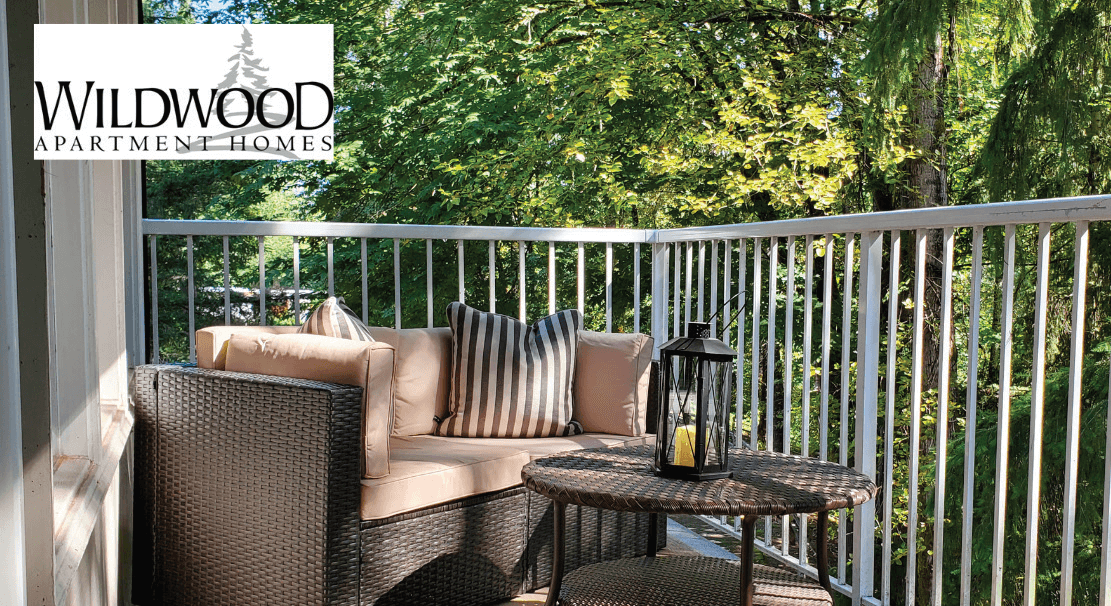PRESERVING LEGACY, EMBRACING CHANGE: The Journey of Wildwood Apartment Homes

Tucked into the forested slopes of Squak Mountain, Wildwood Apartment Homes has quietly served as a cornerstone of Issaquah’s rental housing since the late 1960s. Built by my grandfather, George Rowley, and my father, George “Skip” Rowley, Wildwood was one of the first multifamily communities in the area, designed with six garden-style buildings and 85 units that thoughtfully nestle into their natural surroundings. Located within walking distance of downtown Issaquah and its amenities, Wildwood offers residents the dual benefit of tranquil living and everyday convenience.
My connection to Wildwood runs deep. One of my earliest memories is being babysat by our maintenance manager and his wife, who lived in one of the units. I remember green shag carpet, the smell of cigarette smoke, and a general feeling of comfort. Years later, when I joined Rowley Properties in the early ’90s, Wildwood became one of my first major responsibilities. At the time, we were tackling water damage and condensation caused by the original single-pane windows. Energy efficiency was just emerging as a concept, and our first big investment was upgrading to double-pane windows.
That was only the beginning.
Under my leadership, we also transitioned Wildwood to a non-smoking community—an early step toward promoting healthier living environments. Over the decades, we’ve made strategic reinvestments to extend the life and relevance of the property. We’ve remediated asbestos, replaced aging aluminum wiring and galvanized plumbing, and retrofitted units with CAT5 cabling to meet modern digital needs.
- We phased these upgrades to avoid displacing residents—a more expensive but more humane approach aligned with our values.
- We’ve replaced Rock-Crete siding (a favorite of my grandfather’s, but prone to failure) with durable Hardie board, and redesigned decks, walkways, and stairs for long-term durability in our damp Pacific Northwest climate.
- Roofs have been replaced, parking lots repaved, and outdated appliances retired.
- We’ve reinforced dumpster pads to withstand today’s heavier garbage trucks, and continue to update infrastructure with long-term sustainability in mind.
In recent years, our focus on sustainability has deepened:
- LED lighting
- Low-flow fixtures
- Water-wise landscaping with irrigation systems
- Smart thermostats and more.
Pest management is also essential in our wooded setting, and we’ve adopted an environmentally responsible program centered on prevention and minimal-impact controls.
Originally, all units shared common laundry rooms. Today, most have in-unit washers and dryers. For those that don’t, we’ve modernized the shared facilities with app-enabled, card-accepting machines—no more collecting quarters by the bucket.
What hasn’t changed is our commitment to community. We know our residents by name and design our spaces to encourage connection. We relocated mailboxes to a central hub to create natural gathering spaces, added lighting and sightlines to improve safety, and increased communication to foster a sense of belonging. When codes evolved, we made a $500,000 investment in monitored smoke detection systems to meet updated fire safety regulations—because protecting people is always the priority.
Thousands of people have called Wildwood home. But the path of stewardship is not without its challenges. In the past five years alone, over 46 new local and state landlord-tenant regulations have been enacted. For independent and small-to-mid-size operators like us, the pace and volume of change is unsustainable. The regulatory environment increasingly discourages personalized service—what once was a strength, knowing our tenants and tailoring service, is now viewed as a liability.
- Uniformity is the expectation, and while automation improves efficiency, it also risks eroding the human relationships that make rental housing feel like home.
- It dehumanizes a deeply personal experience.
And now, with rent control policies advancing, we’ve begun to establish a reserve fund simply to prepare for unanticipated capital needs—recognizing that capped rents may no longer cover major expenses in real time. These pressures threaten the very business model that allowed Wildwood to evolve rather than be torn down and replaced.
Still, we remain committed. Wildwood is not just a set of buildings—it is a living legacy. It represents decades of thoughtful stewardship, careful reinvestment, and belief in Issaquah as a place where housing can be both stable and meaningful. We will continue adapting, innovating, and investing in Wildwood as long as it remains financially feasible to do so.
Because we believe quality housing—rooted in community and care—is worth fighting for.
Kari Magill is the CEO at Rowley Properties. Rowley Properties is a third-generation, family business that owns, develops, and manages approximately 80 contiguous acres in downtown Issaquah. Visit their website at www.rowleyproperties.com.
The views expressed in this article are solely that of the author and do not necessarily reflect the views of RHAWA.

